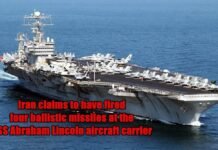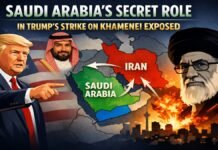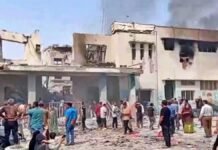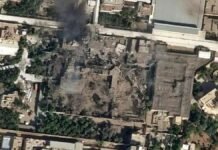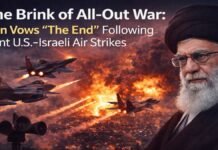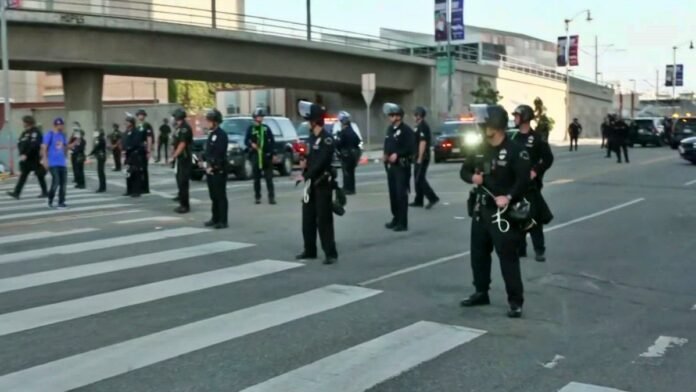
Key Points
- Los Angeles Mayor Karen Bass imposed a curfew in downtown following violent protests and looting, including an Apple Store break-in.
- Protests erupted after President Trump ordered aggressive immigration raids, deploying the National Guard and Marines over local objections.
- Mayor Bass declared a local emergency, criticized the federal response, and called on Trump to halt the raids.
- Over 100 arrests have been made; incidents include vandalism, arson, and clashes between protesters and law enforcement.
- California officials, including Governor Newsom, are seeking to block the military’s involvement, warning it could escalate tensions.
Los Angeles: Los Angeles is under a state of emergency after several days of escalating protests against President Donald Trump’s immigration crackdown. Mayor Karen Bass announced a strict curfew in a one-square-mile section of downtown from 8 p.m. Tuesday to 6 a.m. Wednesday, following a night of widespread vandalism and the looting of an Apple Store.
The unrest began last Friday when Immigration and Customs Enforcement (ICE) agents, acting on Trump’s orders, conducted high-profile raids at businesses suspected of employing undocumented immigrants. The raids sparked immediate outrage in the sanctuary city, leading to mass protests that quickly spread to at least 25 cities across 12 states.
Mayor Bass Declares Emergency, Blasts Federal Response
Mayor Bass, declaring a local emergency, condemned the violence but placed much of the blame on the Trump administration’s aggressive tactics. “If people get violent, if people break the law, they will be subject to arrest and held accountable,” Bass stated, while also urging President Trump to “stop the raid action immediately”. She argued that the heavy-handed federal approach, including armored vehicles and military deployments, has provoked chaos and fear in immigrant communities.
Federal Troops Flood LA Streets Amid Political Backlash
Despite strong opposition from both city and state leaders, President Trump ordered the deployment of 4,000 National Guard troops and 700 Marines to Los Angeles, citing the need to restore order. The military presence has largely focused on securing federal buildings, but local officials warn that the move risks escalating tensions and undermining public safety.
California Governor Gavin Newsom has filed a legal challenge to block the use of military forces for immigration enforcement, calling the deployment a “serious breach of state sovereignty”. Senator Alex Padilla and other critics argue that Trump’s actions are politically motivated and designed to intimidate immigrant communities.
Scenes of Violence: Looting, Fires, and Clashes
The protests, initially peaceful, have at times turned violent. Demonstrators blocked freeways, set fires in dumpsters, and hurled objects at police. Law enforcement responded with non-lethal rounds, tear gas, and mass arrests over 100 people were detained on Monday night alone. Several businesses, including an Apple Store, pharmacies, and a jewelry shop, were looted; graffiti targeting Trump and law enforcement was sprayed on prominent buildings.
Police Chief Jim McDonnell described the violence as “disgusting,” while warning that the situation had spiraled out of control since the federal raids began.
Political Fallout and National Implications
The crisis in Los Angeles has become a flashpoint in the national debate over immigration and the use of federal power. Trump remains defiant, insisting that the deployment of the National Guard was his “best decision,” while critics accuse him of overreach and authoritarianism. Meanwhile, solidarity protests have erupted in other major cities, and experts warn that a heavy-handed response could further inflame unrest.
As the city braces for another night under curfew, both local and federal leaders remain at odds over the path forward leaving residents and businesses caught in the crossfire of a deepening national conflict.



